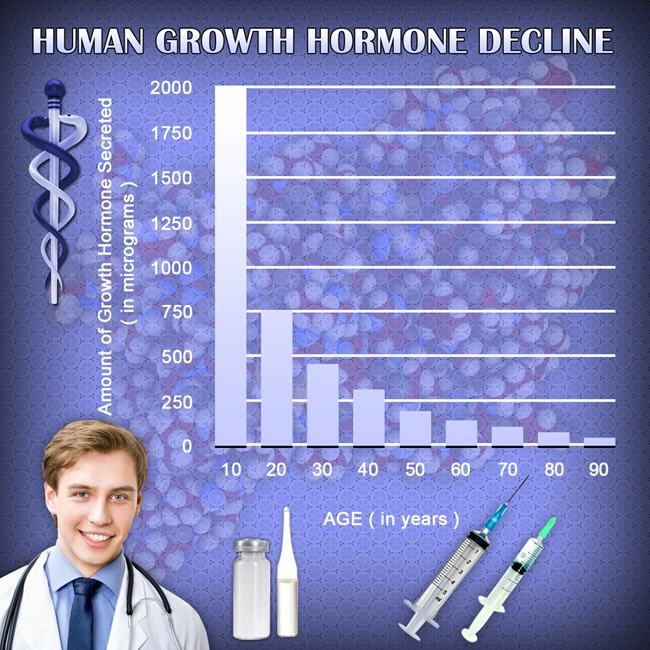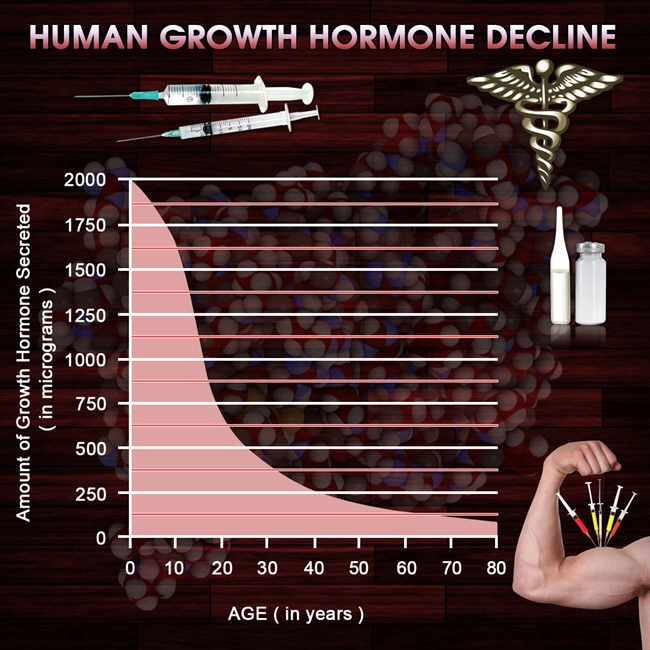
Introduction
Impotence, or erectile dysfunction (ED), is a prevalent concern among American males, affecting their quality of life and overall well-being. Recent research has underscored the significant role that nutrition plays in the prevention and management of ED. A longitudinal study conducted over several years has provided valuable insights into how dietary patterns influence sexual health. This article delves into the findings of this study, offering a comprehensive analysis of the relationship between nutrition and impotence in American males.
Study Design and Methodology
The study in question followed a cohort of 5,000 American males aged 40 to 70 over a period of ten years. Participants were required to complete detailed dietary questionnaires annually, which were then analyzed to identify common dietary patterns. Additionally, participants underwent regular medical examinations to assess their sexual health, including evaluations for ED. The data collected was meticulously analyzed to draw correlations between dietary habits and the incidence of impotence.
Key Dietary Patterns Identified
The study identified three primary dietary patterns among the participants: the Western diet, characterized by high intakes of red meat, processed foods, and sugars; the Mediterranean diet, rich in fruits, vegetables, whole grains, and healthy fats; and the plant-based diet, predominantly consisting of plant-derived foods with minimal animal products. These patterns were then correlated with the participants' sexual health outcomes.
Correlation Between Western Diet and Increased Impotence
Participants adhering to the Western diet exhibited a significantly higher incidence of impotence compared to those following other dietary patterns. The study suggests that the high levels of saturated fats and sugars in the Western diet may contribute to vascular issues and inflammation, both of which are known risk factors for ED. This finding underscores the importance of avoiding diets high in processed and fatty foods to maintain optimal sexual health.
Benefits of the Mediterranean Diet on Sexual Function
In contrast, those following the Mediterranean diet showed a lower incidence of impotence. The diet's emphasis on fruits, vegetables, whole grains, and healthy fats such as olive oil is believed to support cardiovascular health, which is crucial for maintaining erectile function. The study highlights the potential protective effects of the Mediterranean diet against ED, suggesting that adopting this dietary pattern may help prevent impotence.
Plant-Based Diet and Sexual Health
Participants who followed a plant-based diet also experienced lower rates of impotence. The high intake of fiber, antioxidants, and phytonutrients in plant-based diets is thought to contribute to improved vascular health and reduced inflammation, both of which are beneficial for sexual function. The study supports the notion that a diet rich in plant foods can play a role in preventing ED.
Implications for Public Health and Clinical Practice
The findings of this longitudinal study have significant implications for public health and clinical practice. Healthcare providers should consider dietary counseling as part of the management strategy for patients at risk of or experiencing impotence. Encouraging patients to adopt healthier dietary patterns, such as the Mediterranean or plant-based diets, could be an effective preventive measure against ED.
Conclusion
The longitudinal study on American males has provided compelling evidence of the link between nutrition and sexual health. By highlighting the detrimental effects of the Western diet and the protective benefits of the Mediterranean and plant-based diets, the study offers valuable guidance for individuals looking to maintain or improve their sexual function. As the prevalence of impotence continues to be a concern among American males, embracing a nutritious diet could be a key strategy in preventing and managing this condition.
Contact Us Today For A Free Consultation
Dear Patient,
Once you have completing the above contact form, for security purposes and confirmation, please confirm your information by calling us.
Please call now: 1-800-380-5339.
Welcoming You To Our Clinic, Professor Tom Henderson.

- Revolutionizing Intimacy: Advanced Therapies for Erectile Dysfunction in American Men [Last Updated On: February 19th, 2025] [Originally Added On: February 19th, 2025]
- Unveiling the Spectrum of Alternative Therapies for Managing Impotence in American Males [Last Updated On: February 19th, 2025] [Originally Added On: February 19th, 2025]
- Demystifying the Shadows: A Comprehensive Examination of Erectile Dysfunction [Last Updated On: February 25th, 2025] [Originally Added On: February 25th, 2025]
- Fractured Masculinity: Overcoming Impotence and Embracing Emotional Freedom [Last Updated On: February 26th, 2025] [Originally Added On: February 26th, 2025]
- Behind the Silence: Revealing the Covert Battle Against Male Impotence [Last Updated On: February 27th, 2025] [Originally Added On: February 27th, 2025]
- Decoding the Mysteries of Erectile Dysfunction: A Scientific Approach [Last Updated On: February 28th, 2025] [Originally Added On: February 28th, 2025]
- Revamping Masculinity: Thriving in Life Despite Male Impotence [Last Updated On: February 28th, 2025] [Originally Added On: February 28th, 2025]
- Decoding the Enigma: Unraveling Fallacies and Unveiling Realities about Erectile Dysfunction [Last Updated On: March 1st, 2025] [Originally Added On: March 1st, 2025]
- Persistence of Potency: Unraveling the Psychological Aftermath of Impotence [Last Updated On: March 2nd, 2025] [Originally Added On: March 2nd, 2025]
- Exploring the Psychological and Societal Impact of Erectile Dysfunction: Addressing Stigma, Treatment Options, and Lifestyle Changes [Last Updated On: March 3rd, 2025] [Originally Added On: March 3rd, 2025]
- Erectile Dysfunction: Early Indicator of Cardiovascular Disease in Men [Last Updated On: March 4th, 2025] [Originally Added On: March 4th, 2025]
- Exploring Testosterone's Impact on Male Sexual Health and Impotence Management [Last Updated On: March 5th, 2025] [Originally Added On: March 5th, 2025]
- Exploring the Link Between Stress and Erectile Dysfunction in American Men [Last Updated On: March 6th, 2025] [Originally Added On: March 6th, 2025]
- Navigating Impotence in Relationships: Communication Strategies and Maintaining Intimacy Together [Last Updated On: March 7th, 2025] [Originally Added On: March 7th, 2025]
- Understanding and Overcoming Male Impotence: A Path to Recovery and Success Stories [Last Updated On: March 8th, 2025] [Originally Added On: March 8th, 2025]
- The Emotional and Relational Impact of Impotence: Navigating Challenges for Stronger Relationships [Last Updated On: March 9th, 2025] [Originally Added On: March 9th, 2025]
- Innovative Treatments Revolutionizing Impotence Care in American Males [Last Updated On: March 11th, 2025] [Originally Added On: March 11th, 2025]
- Understanding and Overcoming Impotence: A Comprehensive Guide for American Males [Last Updated On: March 12th, 2025] [Originally Added On: March 12th, 2025]
- Revolutionizing Male Health: A Comprehensive Guide to Overcoming Impotence Through Lifestyle Changes [Last Updated On: March 13th, 2025] [Originally Added On: March 13th, 2025]
- Understanding the Therapeutic Pathway: Emotional Recovery from Impotence in American Males [Last Updated On: March 15th, 2025] [Originally Added On: March 15th, 2025]
- Impotence: Understanding, Managing, and Rebuilding Intimacy in American Men [Last Updated On: March 16th, 2025] [Originally Added On: March 16th, 2025]
- Diabetes and Impotence in American Males: Causes, Impacts, and Management Strategies [Last Updated On: March 18th, 2025] [Originally Added On: March 18th, 2025]
- American Men's Triumph Over Impotence: Breaking Silence and Stigma [Last Updated On: March 18th, 2025] [Originally Added On: March 18th, 2025]
- Overcoming Impotence: Breaking Stigma, Seeking Help, and Empowering Men [Last Updated On: March 19th, 2025] [Originally Added On: March 19th, 2025]
- Restorative Sleep: Key to Enhancing Sexual Health and Managing Impotence in American Males [Last Updated On: March 19th, 2025] [Originally Added On: March 19th, 2025]
- Understanding and Overcoming Impotence: Causes, Treatments, and Empowerment Strategies [Last Updated On: March 20th, 2025] [Originally Added On: March 20th, 2025]
- Telemedicine Revolutionizes Impotence Care for American Men: Benefits and Future Prospects [Last Updated On: March 20th, 2025] [Originally Added On: March 20th, 2025]
- Impotence in Aging Men: Biological, Psychological, and Treatment Insights [Last Updated On: March 20th, 2025] [Originally Added On: March 20th, 2025]
- Mental Resilience: Key to Overcoming Impotence in American Men [Last Updated On: March 21st, 2025] [Originally Added On: March 21st, 2025]
- Economic and Emotional Toll of Impotence on American Men: A Holistic View [Last Updated On: March 21st, 2025] [Originally Added On: March 21st, 2025]
- Impotence in American Males: Causes, Treatments, and Triumphs [Last Updated On: March 21st, 2025] [Originally Added On: March 21st, 2025]
- Exploring Aphrodisiacs for Impotence: Scientific Insights and Holistic Approaches [Last Updated On: March 21st, 2025] [Originally Added On: March 21st, 2025]
- Impotence in American Men: Causes, Treatments, and Restoring Intimacy [Last Updated On: March 22nd, 2025] [Originally Added On: March 22nd, 2025]
- Medication-Induced Impotence: Causes, Effects, and Management Strategies for American Males [Last Updated On: March 23rd, 2025] [Originally Added On: March 23rd, 2025]
- Global Perspectives on Impotence: Cultural Views and Treatments for American Men [Last Updated On: March 23rd, 2025] [Originally Added On: March 23rd, 2025]
- Work Stress and Impotence: Understanding Links and Managing Effects in American Men [Last Updated On: March 23rd, 2025] [Originally Added On: March 23rd, 2025]
- Redefining Sexual Success: Understanding and Overcoming Impotence in American Males [Last Updated On: March 23rd, 2025] [Originally Added On: March 23rd, 2025]
- Essential Vitamins and Minerals to Combat Impotence in American Men [Last Updated On: March 23rd, 2025] [Originally Added On: March 23rd, 2025]
- Obesity, Diet, and Impotence: A Guide for American Males' Sexual Health [Last Updated On: March 24th, 2025] [Originally Added On: March 24th, 2025]
- Debunking Impotence Myths: Empowering American Men with Facts and Treatment Options [Last Updated On: March 24th, 2025] [Originally Added On: March 24th, 2025]
- Understanding and Managing Erectile Dysfunction: Breaking the Silence and Stigma [Last Updated On: March 24th, 2025] [Originally Added On: March 24th, 2025]
- Exploring Secondary Causes of Impotence in American Men Beyond Medication [Last Updated On: March 24th, 2025] [Originally Added On: March 24th, 2025]
- Smoking, Alcohol, and Impotence: Risks and Mitigation Strategies for American Men [Last Updated On: March 24th, 2025] [Originally Added On: March 24th, 2025]
- PDE5 Inhibitors: Revolutionizing Erectile Dysfunction Treatment in American Men [Last Updated On: March 24th, 2025] [Originally Added On: March 24th, 2025]
- Innovative Approaches Revolutionizing Impotence Treatment and Diagnosis [Last Updated On: March 24th, 2025] [Originally Added On: March 24th, 2025]
- Innovative Gadgets and Therapies Revolutionize ED Treatment and Management [Last Updated On: March 24th, 2025] [Originally Added On: March 24th, 2025]
- Overcoming Impotence: Strategies for Enhancing Seduction and Intimacy [Last Updated On: March 24th, 2025] [Originally Added On: March 24th, 2025]
- Lifestyle Choices Impacting Male Sexual Health: Diet, Exercise, and More [Last Updated On: March 24th, 2025] [Originally Added On: March 24th, 2025]
- Chronic Stress and Impotence: Understanding Links and Managing Effects [Last Updated On: March 24th, 2025] [Originally Added On: March 24th, 2025]
- Acupuncture as a Complementary Therapy for Impotence in American Males [Last Updated On: March 25th, 2025] [Originally Added On: March 25th, 2025]
- Overcoming Impotence: Partners' Role in Recovery and Intimacy [Last Updated On: March 25th, 2025] [Originally Added On: March 25th, 2025]
- Impotence and Self-Esteem: Counseling Strategies for Recovery and Resilience [Last Updated On: March 26th, 2025] [Originally Added On: March 26th, 2025]
- Impotence in American Men: Causes, Treatments, and Holistic Recovery Strategies [Last Updated On: March 26th, 2025] [Originally Added On: March 26th, 2025]
- Understanding Impotence: Anatomy, Blood Flow, and Holistic Treatment Approaches [Last Updated On: March 26th, 2025] [Originally Added On: March 26th, 2025]
- Physical Therapy: A Comprehensive Approach to Treating Impotence in American Males [Last Updated On: March 26th, 2025] [Originally Added On: March 26th, 2025]
- Endocrine Disorders and Impotence: Hormonal Imbalances and Treatment Strategies [Last Updated On: March 26th, 2025] [Originally Added On: March 26th, 2025]
- Psychological Approaches to Managing and Overcoming Impotence in American Males [Last Updated On: March 26th, 2025] [Originally Added On: March 26th, 2025]
- Exercise as a Potent Remedy for Impotence in American Males [Last Updated On: March 26th, 2025] [Originally Added On: March 26th, 2025]
- Overcoming Impotence: Understanding Causes and Embracing Sexual Wellness in Modern Men [Last Updated On: March 27th, 2025] [Originally Added On: March 27th, 2025]
- Navigating Insurance Coverage for Effective Erectile Dysfunction Treatment in the US [Last Updated On: March 27th, 2025] [Originally Added On: March 27th, 2025]
- Impotence in American Men: Psychological Impacts and Coping Strategies [Last Updated On: March 27th, 2025] [Originally Added On: March 27th, 2025]
- Evolving Treatments for Impotence: From Ancient Remedies to Future Innovations for American Men [Last Updated On: March 28th, 2025] [Originally Added On: March 28th, 2025]
- Impotence: Unveiling Emotional, Financial Burdens and Seeking Supportive Solutions [Last Updated On: March 28th, 2025] [Originally Added On: March 28th, 2025]
- Innovative Devices and Technologies Revolutionizing Impotence Treatment [Last Updated On: March 28th, 2025] [Originally Added On: March 28th, 2025]
- Exploring Injection and Device Therapies for Effective ED Treatment in American Men [Last Updated On: March 28th, 2025] [Originally Added On: March 28th, 2025]
- Emotional Challenges of Impotence: Coping Strategies for American Men [Last Updated On: March 28th, 2025] [Originally Added On: March 28th, 2025]
- Impotence in American Men: Redefining Masculinity and Seeking Support [Last Updated On: March 29th, 2025] [Originally Added On: March 29th, 2025]
- Impotence and Mental Health: Understanding Links and Holistic Management Strategies [Last Updated On: March 29th, 2025] [Originally Added On: March 29th, 2025]
- Overcoming Impotence: American Men's Journeys to Recovery and Confidence [Last Updated On: March 30th, 2025] [Originally Added On: March 30th, 2025]
- Mindfulness and Meditation: Complementary Approaches to Managing Impotence in American Men [Last Updated On: March 30th, 2025] [Originally Added On: March 30th, 2025]
- Understanding Impotence: Biochemical, Hormonal, and Psychological Factors in American Men [Last Updated On: March 30th, 2025] [Originally Added On: March 30th, 2025]
- Surgical Options for Impotence: Types, Considerations, and Outcomes [Last Updated On: March 31st, 2025] [Originally Added On: March 31st, 2025]
- Impotence Treatment Advances: Personalized, Non-Invasive Options on the Horizon [Last Updated On: April 1st, 2025] [Originally Added On: April 1st, 2025]
- Impotence in American Men: Psychological Impacts and Holistic Management Strategies [Last Updated On: April 2nd, 2025] [Originally Added On: April 2nd, 2025]
- Prostate Health and Impotence: A Comprehensive Guide for American Men [Last Updated On: April 2nd, 2025] [Originally Added On: April 2nd, 2025]
- Chronic Illness and Impotence: Understanding Links and Management Strategies [Last Updated On: April 5th, 2025] [Originally Added On: April 5th, 2025]
- Environmental Toxins and Male Sexual Health: Impacts and Mitigation Strategies [Last Updated On: April 6th, 2025] [Originally Added On: April 6th, 2025]
- Lifestyle Hacks to Combat Impotence: Diet, Exercise, and More for American Males [Last Updated On: April 7th, 2025] [Originally Added On: April 7th, 2025]
- Impotence in American Men: Understanding, Breaking Stigma, and Seeking Treatment [Last Updated On: April 7th, 2025] [Originally Added On: April 7th, 2025]
- Revolutionizing Impotence Treatment: Gene Therapy, Stem Cells, and New Drugs [Last Updated On: April 7th, 2025] [Originally Added On: April 7th, 2025]








